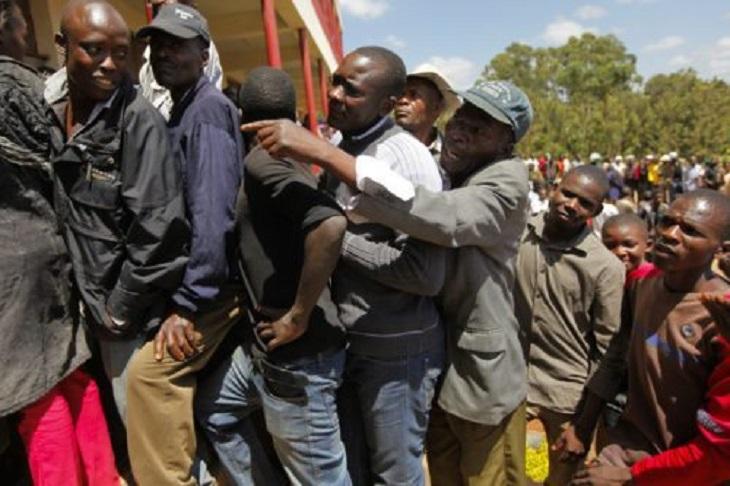More than three million voters are being called to the polls in Sierra Leone this Wednesday, March 7 for the presidential, legislative and local elections.
Head of State Ernest Bai Koroma has to hand over after two terms.
Sierra Leone is one of the ten poorest countries in the world.
Sixteen candidates, three favorites
This is the fourth election since the end of the civil war in 2002. Sixteen candidates (including two women) are in the running, but in reality, only three men have a real chance to win: Samura Kamara, the Minister of Foreign Affairs who will wear the colors of the APC, the ruling party; Julius Maada Bio, invested by the main opposition party (SLPP). Both are favorites, with SLPP dissident Kandeh Yumkella as the main challenger.
Samura Kamara, 66, is an experienced diplomat, but little known to the general public. It has the main advantage and disadvantage of being the candidate of the ruling party.
Advantage, because he has behind him the biggest party of the country, very popular in the North.
Disadvantage because appointed by the outgoing president, Ernest Bai Koroma. The economist by training, former governor of the Central Bank and former finance minister, is perceived as a potential straw man of the former head of state.
Julius Maada Bio, 53, is more popular. Alreadya candidate in 2012, he is the former head of a military junta who led the country for a few months in 1996 before handing over to civilians.
His name remains associated with the return to democracy and multiparty politics.
He will try to take advantage of the economic and social discontent that marked the second term of the outgoing president. In particular, the management of funds for the fight against Ebola has been widely criticized.
But the third man could create surprise. Kandeh Yumkella slammed the door of the SLPP last September to create his own party.
Since then, he is the main challenger of the two historical candidates.
Quite popular with young people, he could change the game. Or in case of second turn to become kingmaker. Because if he manages to total a little more than 10% of the vote, he could tip the scales on one side or the other.
The stakes of the vote: to restore the economy
Key challenge for the next president of Sierra Leone: get the country out of the economic doldrums. Iron, diamonds, bauxite: the subsoil is full of riches, used over the past ten years to renew road and electrical infrastructure. Freetown is no longer dubbed “the dark city”.
But price volatility and the shock of the Ebola outbreak, more than 4,000 deaths have put the economy on the ground.
The health system remains weak, unemployment and precariousness affect two thirds of the population.
Corruption is endemic. And more Sierra Leoneans are calling for change.
It could intervene in favor of a renewal of leaders because there is a “reconfiguration” of the political spectrum with the emergence of dissident figures of traditional parties.
This phenomenon could call into question a bipartism well established and very influenced by the ethnic or geographical factors, to see causing the surprise of this election.
Sierra Leone remains one of the poorest countries in the world, ranked 179th out of 188 according to the Human Development Index (HDI, 2016) of the United Nations Development Program (UNDP).
It is also one of the most corrupt, ranked 130th out of 180 countries by Transparency International in 2017 and has the worst maternal mortality rate in the world (1360 maternal deaths per 100,000 live births according to the UN).
The expectations of the population
“Peace”: this word comes back in all mouths when we ask the Sierra Leoneans what they expect from the elections. The last elections went rather well, but the memory of the civil war that led to 120,000 dead in 11 years remains tenacious
Education, employment, fighting corruption: Sierra Leoneans want change!
